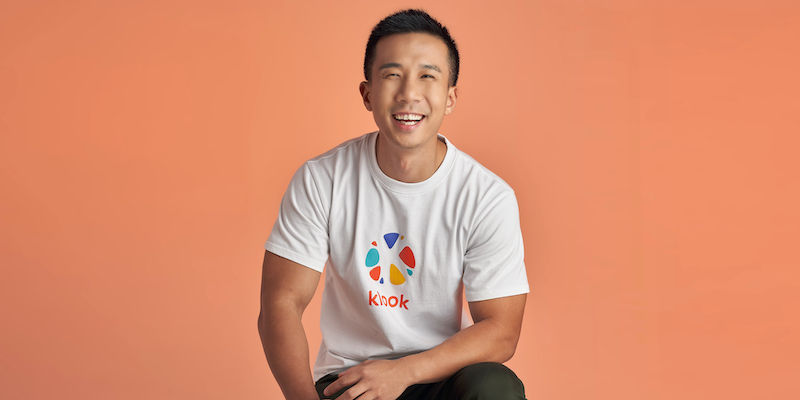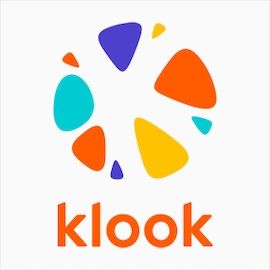Ethan Lin and co-founders Eric Gnock Fah and Bernie Xiong launched tours and activities marketplace Klook 10 years ago in Asia. Now it is poised for growth through geographical expansion as well as tapping social media audiences.
Klook announced $210 million in a Series E+ round a year ago and said it had achieved overall profitability for the first time. It also unveiled a three-pronged strategy for growth which encompasses product innovation, digital and social marketing and AI developments.
Tours and experiences platform Klook is 10 years old. The Asia-based company announced overall profitability about a year ago and has recently unveiled details of a partnership with TikTok as well as expanded its work with Google.
PhocusWire spoke to CEO Ethan Lin to discuss progress with the strategy, artificial intelligence in travel and advantages and downsides of having a background in banking.
The conversation has been edited for brevity.
You announced $210 million in funding last December for this three-pronged growth strategy - product innovation, scaling social and digital marketing through the creator program and AI. Can you update me on product first?
I think product is a continuing innovation, it’s an ongoing journey. There are some recent ones that we believe can make a difference in the market. The first is the end-to-end user journey in a destination. That means that while people are on the go, especially in the app, how do you make sure the touch points are in sync with each other. Basically, it’s about making it a more seamless journey for consumers.
The second part around product is that actually experiences is not a single category. It's often misunderstood, it’s multi-category. You could be booking a spa, joining a tour, going fast track at Disneyland or Universal Studios or going diving. That is four different categories already - each are what we call sub-categories of experiences. We're going much more in-depth so that the vertical or service is more seamless for the consumer. So, it's a different template.
For example, for spa and massage - which in Thailand is very big - you can literally make a reservation directly through Klook. You're not just getting a voucher, you reserve and book and if you want to adjust your time, you can do that. We actually have more specific template for the consumer to provide the information required to a degree that they can make that booking. So, hence we can increase the conversion rate.
How much do you think that AI in travel has been hyped so far?
Travel is at the front line for AI application. Travel is not the AI model itself, so if anyone is building the fundamental language model for travel, it does not make sense. What we need to do is understand all the different language models and how you build what we call the brand. That brand means your own understanding of consumer behavior and the data you collect. The more data you have, the better. In our view, AI is about product innovation in every single point that has consumer interaction to make it seamless.
We look at where AI can actually help to make something easier. For example, information navigation, because in the activity and experiences sector, the information is massive. It's different from hotels or flights, which is a point-to-point filter.
But for experiences there's so much information in the market and every single person has their own preferences. There are a few things we are working on such as the chatbot to help the consumer navigate the information. So with the data, with consumer preferences, with the content we have, it's pre-booking customer service, like a digital concierge.
Then, when you look at all the options for certain tours, how can you tell the difference? So we're going to add a button there. When we recognize your behavior, [and if] you don't know which tour because there are just so many, we have one button for you to click to compare the different options instead of continuous searching.
That is the direction that we're working on. Another direction with AI is more on the recommendation algorithm. That's something we started in 2018 even before generative AI. We have a content feed, the more you browse and use the app, the more it's tailored to what you’re interested in. It recognizes your pattern - as you spend more time looking at family activities, it will just give you more recommendations for family activities. So, we continue to build that recommendation mechanism at different touch points with consumers. Given the space on the phone, you want to look at things that you are more interested in rather than think you need to constantly search. We see ongoing changing behavior. It's also because of Instagram and TikTok that it has become much more recommendation driven rather than search driven.
That brings me to your social media proposition, your bookings on TikTok. Can you share any early results?
We were working already with Douyin so it's not new to us. We are working together with TikTok to provide services and supply around these kind of points of interest without overwhelming consumers. Then when people look at this point of interest, you know the intention is higher and there's a book button. We're still in the test stage, so there's no official information that we can share but the early traffic and interaction is very promising.
You recently offered some free, once-in-a-lifetime experiences to celebrate Klook's 10th anniversary. Airbnb did something similar with its Icons, and a lot of people called it a marketing ploy. Is that what this is?
I do believe it's marketing. We have to understand it is so unique, so authentic. The spot is limited so it cannot scale. The difference between Airbnb and us is we're about going out to do something, that's our brand recall, which for Airbnb is where to stay. We are approaching it in a very similar way for a different sector - a very unique place to stay versus a very unique thing to do.
We know that if the consumer is lucky to get a spot, it will be a lifetime experience, but it's not scalable. It's not scalable because it's so much effort has been put into each one. So, it is more marketing but at the same time, we hope by doing this, it can inspire even more authentic and off the beaten path experiences available in the market that can scale.
On stage at WiT Singapore, you said there's nothing transformational tech wise in travel right now. Why is that?
Travel is a consumer behavior. When people go out, they want to find something trustworthy. Naturally, the majority of people, when they go travel, they already have safety, information, clarity. There are a lot of things to take care of first before even trying something no one tried before.
So, because of that mentality, travel will never be at a frontrunner of technology innovation, but it is one of the early adopters. My personal view is that travel will not be disruptive to the tech sector itself, but the right technology can accelerate and be disruptive to travel.
How would you say the fact both you and your co-founder Eric Gnock Fah started in banking has helped in travel startup land?
It was not working to our advantage in the early days. We both came from banking, people hated that. When we first came out we had a very good pitch with market sizing, the model, data, unit economics. As a startup presentation it was considered sharp, but people didn’t like it. They felt we hadn't proven ourselves to be strong in the sector, knowing it and executing in it, but we were very good for at presenting ourselves.
A lot of venture capitalists, knowing that we were ex-bankers, did not even want to meet. But, because our app was featured by Apple as the best new app across almost every single market in Asia Pacific, then VCs saw and they came to us. That was how our first key funding came about. But, it [the background] helps in the later stage, as the model evolves, as the data proves itself.
You have IPO experience, is that something you’ll be applying to Klook anytime soon?
Not any time soon because an IPO is a process. Many people underestimate how much preparation needs to be done. From the very early days we had already started doing data privacy and data compliance and one of our strengths is we’re one step ahead. But whether IPO happens or when, that’s more a market question. You need to be a certain size, in the few billion range is a good size, you’re scalable, you still have a high growth rate and then it really depends on whether it’s the right market.
What do you know now that you wish you’d known 10 years ago?
I wish I could have anticipated COVID, but that’s not realistic. If I had known, the 2019 strategy would have been very different because we went through a very tough time. We were rapidly growing in 2019, and it was also a good year for capital markets. Then COVID hit and we needed to let a few 100 people go. That was the first time in my life, and it was the right decision but a very tough decision. It helped us as a team to gain the trust of the board and shareholders but we needed to do it in the right way and that’s what we did.
Something we can control is how to sunset a project or initiative that doesn’t work. Sometimes you’re overly spending time or effort investing in something that may not have a result. You need to know when to cut your losses and sunset things that you know are unlikely to work. You have to a few projects that may or may not work but while you’re doing new things you also need to know when to stop.
Tags: AI application, Travel, Tours and Activities, Ethan Lin Klook

